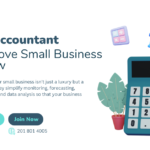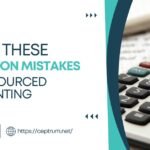You may need a business license if you’re considering selling on Etsy. The answer depends on various factors, such as where you live, the type of products you sell, and how often you sell them. Here’s what you need to know:
Definition of a Business License
A business license is a permit issued by a government agency that allows you to conduct business within a specific area or jurisdiction. It helps ensure businesses comply with local laws, regulations, and taxes.
Hobby vs Business
If you sell items on Etsy as a hobby or a one-time event, you may not need a business license. However, if you plan to sell on Etsy and earn a profit regularly, you will likely need a business license.
Local Regulations
The business license requirements vary depending on your location. Some cities or states may require you to register your business with the local government or obtain a tax ID number before applying for a business license.
Product Regulations
If you sell products regulated by the government, such as food or cosmetics, you may need additional permits or licenses. For example, if you sell handmade soap, you may need a cosmetic manufacturing license.
Type of Business Entity
Your business entity types, such as sole proprietorship, partnership, or LLC, may also affect whether you need a business license. Some states require businesses to obtain a license for certain entity types.
Tax Obligations
If you have a business license, you will likely need to pay taxes on your income. This includes federal income tax, state income tax, and self-employment tax.
How to Obtain a Business License
You must apply and pay a fee to obtain a business license. You may also need documentation, such as a tax ID number or proof of insurance.
Check with Your Local Government
To determine whether you need a business license to sell on Etsy, it’s best to check with your local government or small business administration. They can provide specific information on your area’s requirements and fees for obtaining a business license.
What Happens if You Get Audited, and You Do Not Have Receipts?
If the IRS audits you and needs receipts or other documentation to support your income or deductions, it can be challenging to prove your case. Here’s what you need to know:
Burden of Proof
Generally, the burden of proof falls on the taxpayer to show that their income and deductions are accurate. With receipts, providing sufficient evidence to support your claims may be easier.
Other Documentation
If you do not have receipts, you may be able to provide other types of documentation to support your income and deductions. For example, you could provide bank statements, credit card statements, or invoices to show that you made purchases or received payments related to your business.
IRS Estimates
If you cannot provide any documentation to support your income or deductions, the IRS may estimate your income and expenses based on other information they have, such as industry averages or information from other taxpayers with similar businesses. This can result in higher tax liabilities and penalties for underreporting income or overreporting deductions.
Importance of Record-Keeping
To avoid this situation, keeping accurate records of all your income and expenses related to your business is crucial. This includes receipts, invoices, bank statements, and other documentation showing your transactions’ source and purpose.
How Long to Keep Records
The IRS recommends keeping records of your income and expenses for at least three years from the date you filed your tax return. However, if you underreported your income or failed to file a return, the IRS can audit you for up to six years. Therefore, keeping records for at least six years is a good practice to be safe.
Penalties and Interest
If you cannot provide documentation to support your income or deductions and the IRS determines that you owe additional taxes, you may face penalties and interest on the amount owed. These penalties can include failure to file penalties, failure to pay penalties, and accuracy-related penalties.
Ways to Avoid an Audit
It’s important to keep accurate records of all your income and expenses, file your tax returns on time, and report all your income, to avoid an audit. If you need clarification on a deduction or income source, it’s best to consult a tax professional.
What to Do if You Are Audited
If you are audited and do not have receipts or other documentation to support your income or deductions, it’s important to remain calm and cooperate with the IRS. You can request additional time to gather documentation, work with a tax professional, or appeal the audit findings if you disagree with them.
Tips for Keeping Records
To ensure accurate records, it’s important to keep all your receipts and invoices, record all your transactions in a ledger or accounting software, and reconcile your bank and credit card statements regularly. You should also securely keep copies of your tax returns and other important documents.
Conclusion:
In conclusion, obtaining a business license is essential if you plan to sell on Etsy as a business and keep accurate records of all your income and expenses. If you are audited and need receipts, it can be challenging to prove your case, but you can still provide other types of documentation and work with a tax professional to resolve the situation. By following these tips and best practices, you can avoid an audit and ensure that your business complies with all applicable tax laws and regulations.






